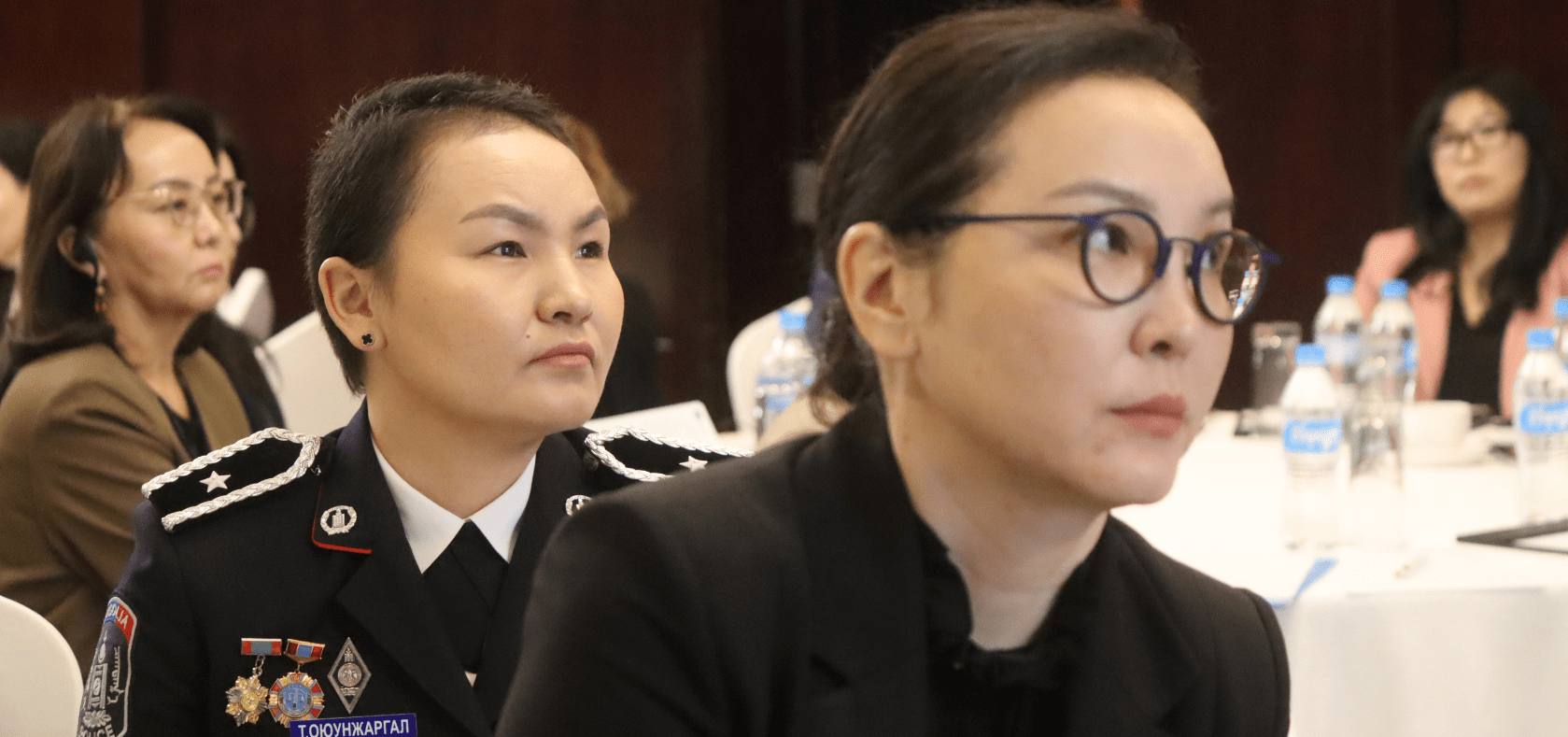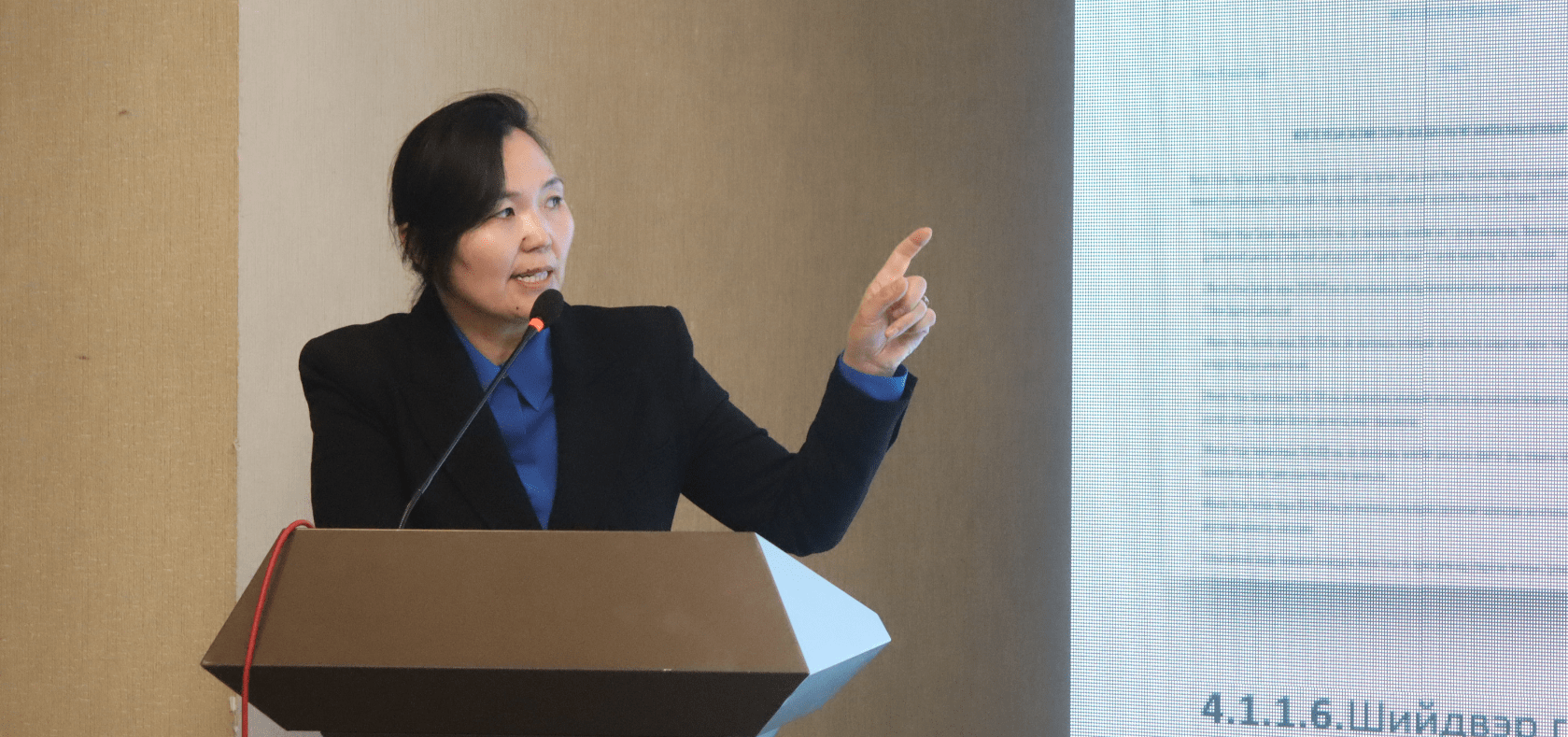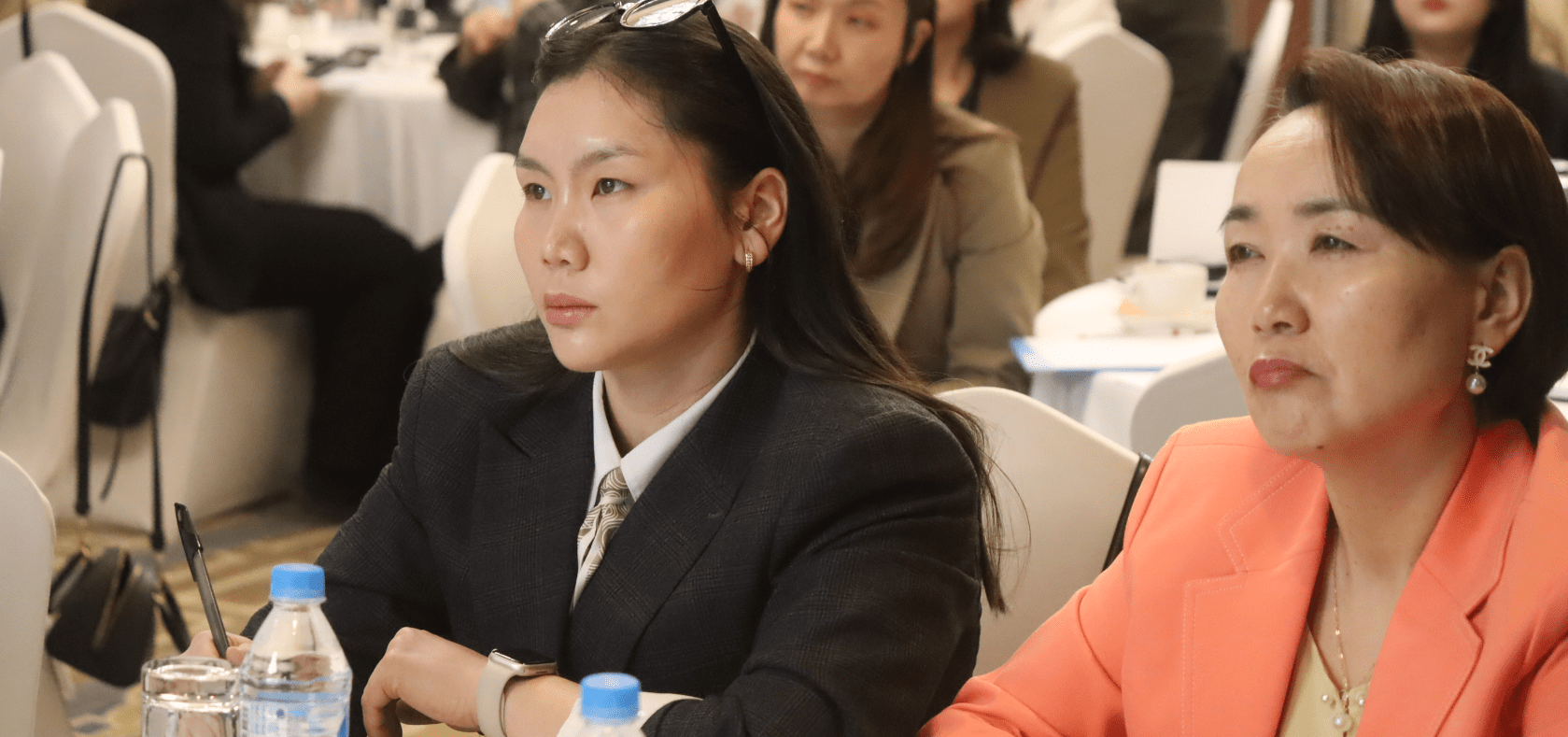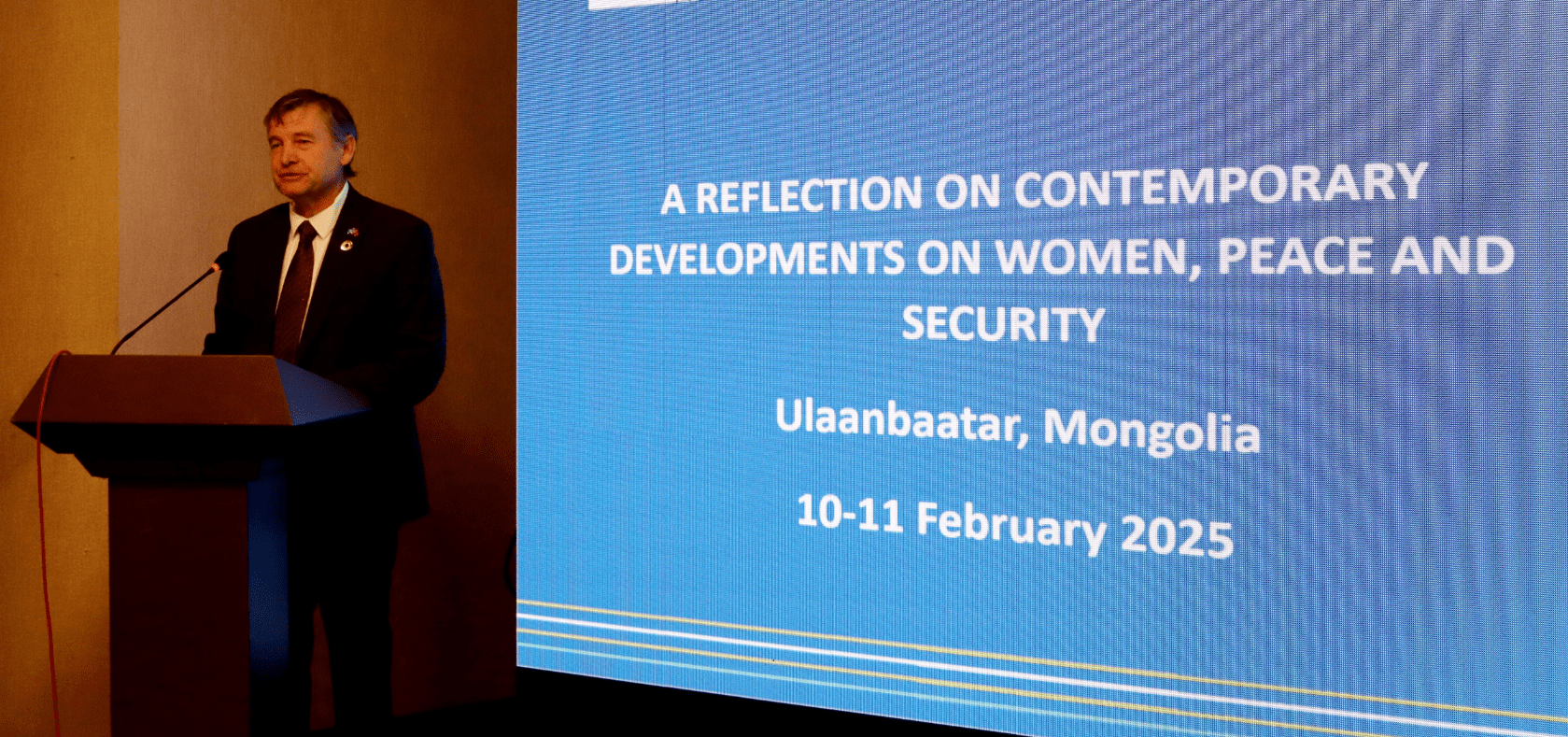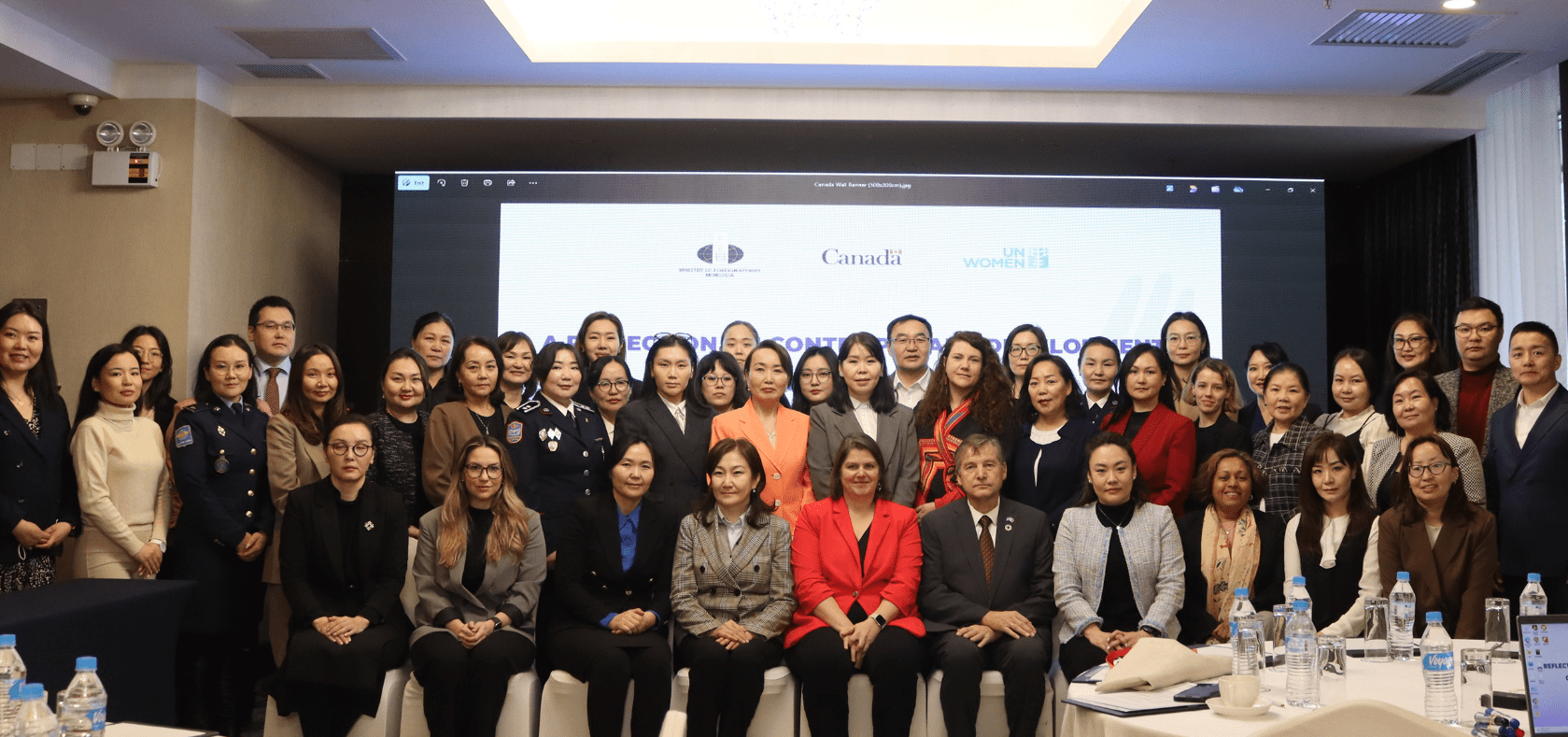Mongolia advances its commitment to Women, Peace and Security
Date:
UN Women has welcomed a commitment by the Government of Mongolia to prioritize developing the country’s first National Action Plan on Women, Peace and Security (WPS) through a collaborative process.
Speaking at a forum in Ulanbaataar on contemporary developments for the WPS agenda, Mandkhai Batsuren, Director-General of the Multilateral Cooperation Department at the Ministry of Foreign Affairs of Mongolia, issued a strong call to action.
“As we mark the 25th anniversary of United Nations Security Council Resolution 1325, Mongolia has remained highly engaged with the WPS agenda,” said Ms Batsuren.
“It is now time for Mongolia to develop a National Action Plan on Women, Peace and Security. This must be a collective effort. The government, civil society organizations and academia must work together to determine our national priorities.”
On 10-11 February 2025, 50 participants from key government ministries, civil society organizations and academia gathered for a knowledge sharing forum on the WPS agenda, co-organized by the Ministry of Foreign Affairs with the Embassy of Canada to Mongolia and UN Women.
The WPS agenda is an established global framework aimed at achieving the full and equal representation and participation of women in all levels of peace processes and security efforts.
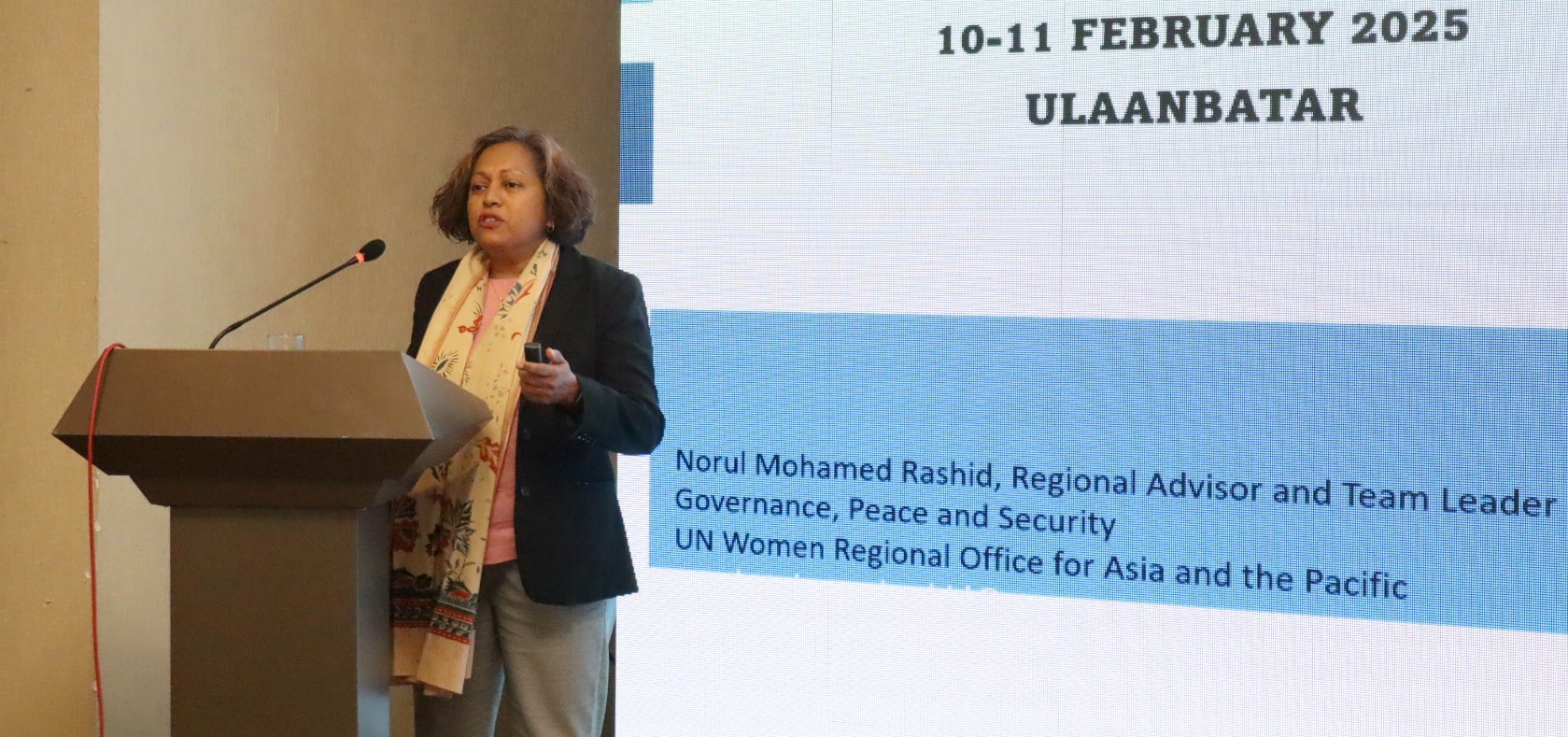
UN Women shared promising practices and lessons learned from the Asia-Pacific region on National Action Plan development, including those concerning non-traditional peace and security issues, such as climate change, the digital space, intersectionality, disability inclusion and global WPS mechanisms.
At the conclusion of the two-day event, participants identified key national priorities to advance the WPS agenda in Mongolia.
Among the critical issues prioritized for consideration were environmental degradation and climate change and their consequences on livelihoods, human mobility and migration.
Cybersecurity threats and online harms were also highlighted by the participants.
Discussions emphasized the safety and security of vulnerable groups who face heightened risks, particularly people with disabilities and rural women.
Additionally, participants underscored the importance of ensuring women's meaningful participation and leadership in governance and security sectors, recognizing their vital role in shaping sustainable and inclusive policies.
Recognizing the importance of these issues, the Ministry of Foreign Affairs indicated it will take concrete steps to institutionalize Mongolia’s commitment to WPS.
In the coming months, a coordination mechanism or task force comprising government bodies and civil society will be established and will play a pivotal role in shaping the next steps for developing the NAP, including undertaking a comprehensive situation analysis and consultations that are due to involve the most marginalized women to ensure their voices are heard.
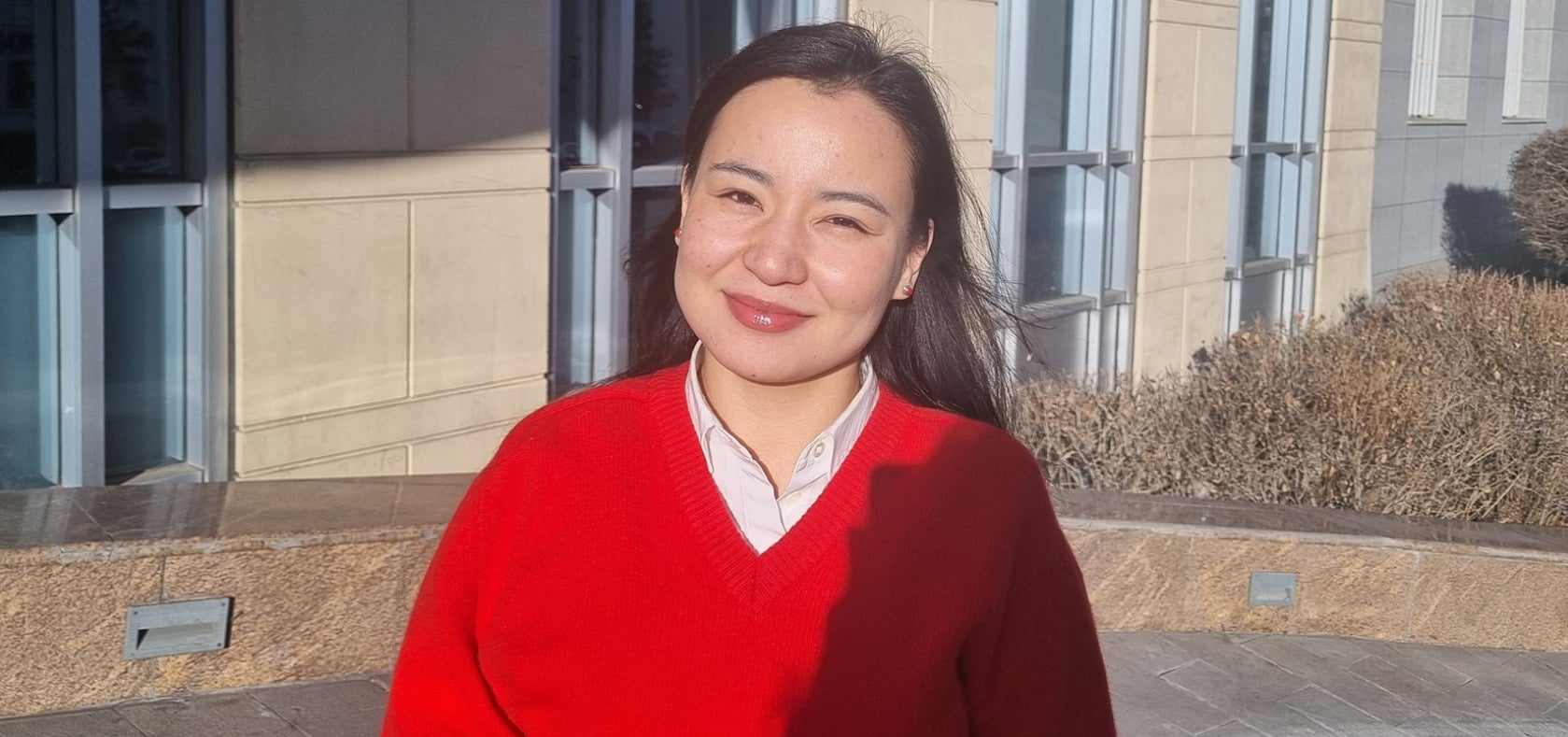
Saruul-Ukhaan Sodbaatar, an Environmental and Gender Equality activist and member of the National Environmental Youth Council, reflected on the essential nature and power of cross-generational learning.
“I have had the opportunity to engage with experienced leaders in security, peacebuilding and governance. While young people may not always match the expertise of seasoned professionals, collaboration allows us to bring fresh perspectives and innovative tools that amplify advocacy efforts,” said Ms Sodbaatar at the forum.
While cybersecurity threats disproportionately impact women and girls, Ms Sodbaatar underscored the need to leverage digital tools for advocacy: “AI-powered tools can detect misinformation before it spreads, and global youth networks enable us to connect beyond borders, amplify our voices and fill advocacy gaps to drive real action for change”.
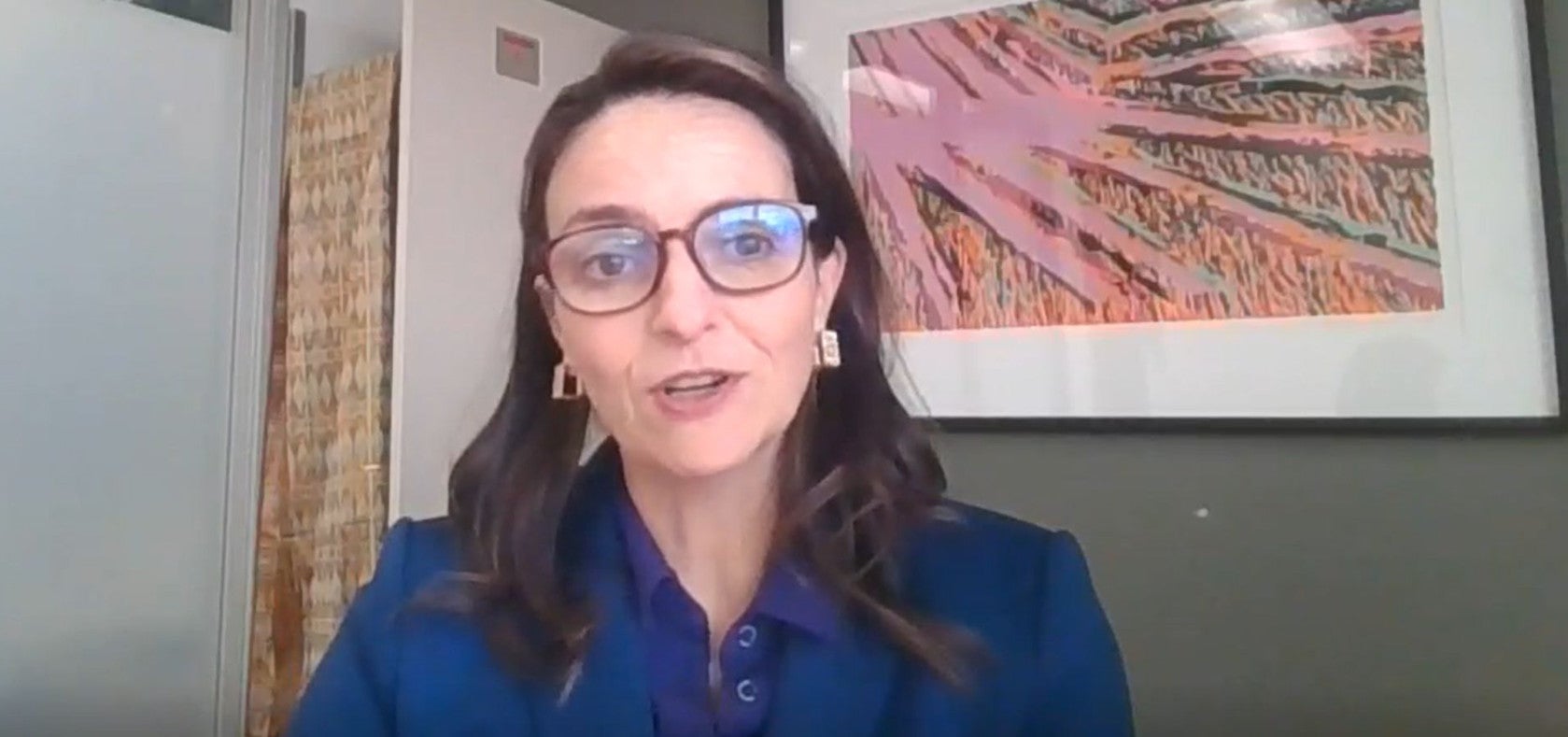
Speaking via a video message, Jacqueline O’Neill, Canada’s Ambassador for Women, Peace and Security, recognized Mongolia’s leadership in advancing the global WPS agenda and shared key lessons from Canada’s own experience in developing a National Action Plan.
“There is much to learn from Mongolia’s experience, particularly its contributions to international peacekeeping and its leadership in promoting women’s participation in peace and security,” said Ms O’Neill.
“One of the most important takeaways from our process was the critical role of civil society—not only in holding governments accountable but also in addressing today’s most pressing challenges, such as climate security and online violence against women.
“The second key lesson is the importance of cross-government collaboration. While Canada’s NAP WPS is coordinated by the Ministry of Foreign Affairs, its success depends on the engagement of 10 different government departments and agencies, underscoring the need for broad institutional ownership, noting that such collaboration is essential to strengthening the plan’s implementation and ensuring its long-term impact.”
During the forum, UN Women reaffirmed its willingness to support Mongolia in the development of the country’s National Action Plan on WPS.
In 2022, during his visit to Mongolia, UN Secretary-General António Guterres reaffirmed the United Nations' solidarity with the country, describing Mongolia as “a symbol of peace in a troubled world.”
See also:
